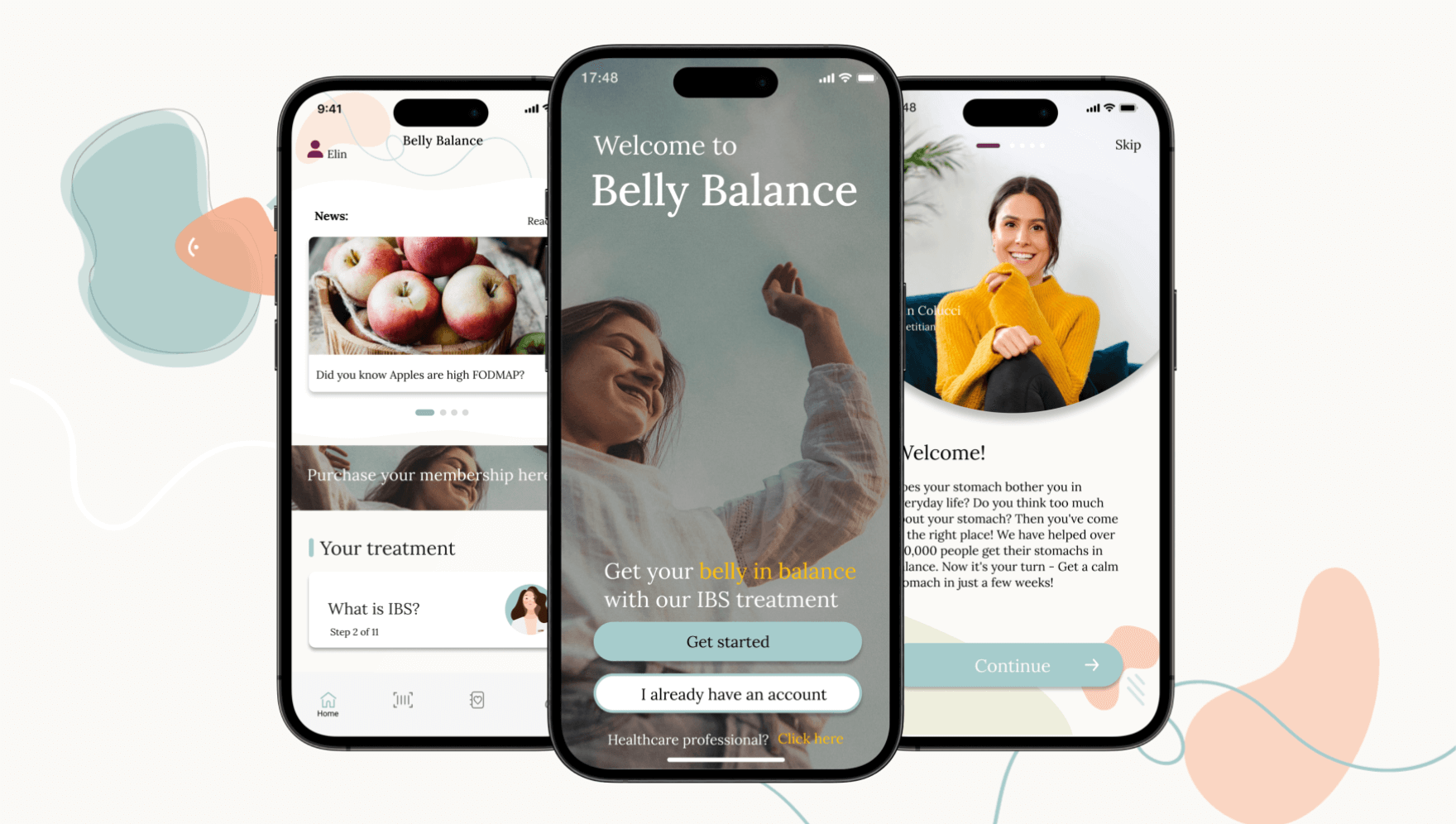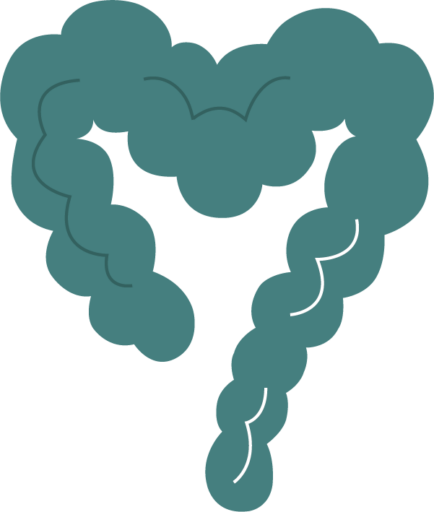
Tea and IBS
Some people love the smell of freshly brewed coffee in the morning, while others prefer a nice cup of tea. And is there anything cozier than curling up on the couch with a big mug of your favorite tea and listening to the rain pattering against the windows? Most people know that coffee can affect the stomach in different ways, but the fact is that tea also affects the stomach depending on which tea you drink. So, to start the day in the best way, without stomach trouble, it’s important to choose the right tea for your stomach. Tea and IBS can go well together, as long as you choose the right tea.
Download the app
In the Belly Balance app, you’ll find dietary advice, recipes, FODMAP lists, a stomach diary, a food diary, a barcode scanner, and much more to help you manage your IBS.
Thein and FODMAPs
The two substances that usually cause issues for the stomach when it comes to tea and coffee are the content of FODMAPs and caffeine, or theine as it’s called when found in tea. Both are stimulating substances and can disrupt the intestines, especially for those who already have a fast transit time. In that case, it can be especially important to reduce the amount of coffee and tea to calm the stomach. Coffee beans themselves contain small amounts of FODMAPs, while the content in different types of tea varies.
FODMAP content in tea
Here is a list of the FODMAP content in different types of tea:
- Black tea – limit intake to a maximum of 250 ml (about 8 oz) per day during the elimination phase
- Green tea
- White tea
- Red tea
- Herbal tea, peppermint
- Herbal tea, dandelion
- Herbal tea, fennel
- Herbal tea, chamomile
- Herbal tea, licorice root
- Chai tea
- Oolong tea
Chamomille is not calming
As you can see, both chamomile tea and fennel tea have high FODMAP content, despite the myth that they are known for soothing the stomach. Could this be a culprit for you? Sometimes it’s the food or drink you consume every day, even in small amounts, that disrupts your stomach. In that case, it might be as simple as switching to the right type of tea to make your stomach happy again.
Sofia Antonsson
Reg. Dietitian, Belly Balance
Read more about

IBS - What is it?
Bloated , constipated or having a gassy stomach? IBS or Irritable Bowel Syndrome is a functional gastrointestinal disorder, meaning no physical issues can be found in the stomach or intestines; they just don’t function quite as they should.

How the app works
Download the app and become part of our community. We assist you in achieving a calm and happy stomach through treatment and tools available directly in the app.

About FODMAP
By learning which foods upset your stomach, you can make conscious choices and get quick symptom relief. With the low FODMAP diet, you receive structured assistance in understanding which foods your body tolerates better than others. No more guessing and pondering – you get the answer straight away!

